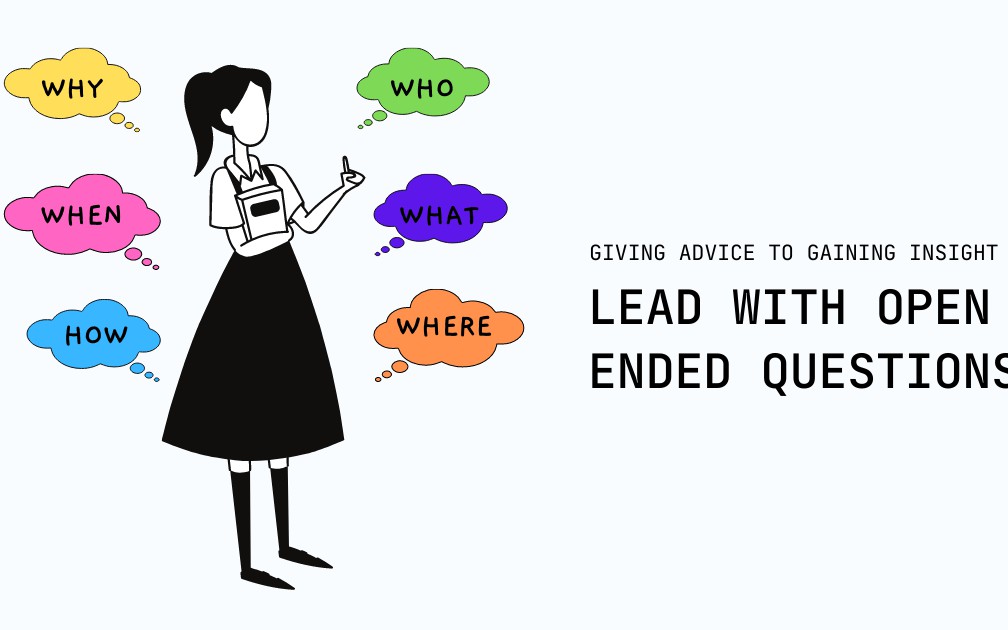Have you noticed what happens when someone asks you a really good open-ended question? Your mood shifts and body language changes as your mindsets on a quest to look within, think deeply and churn out ideas. The endorphin rush that comes from exploring uncharted territories triggers a positive feeling in the body.
Good open-ended questions encourage people to indulge in storytelling and forming new connections. It motivates action, builds trust, and promotes accountability.
Yet, people who have all the answers are favored over those who indulge in deliberate thinking. Answers and not questions have become the hallmark of great leadership.
With a culture that promotes advising as opposed to enabling people and setting them on a path of self-discovery, giving instructions and telling people how to do their jobs has become the norm.
It leads to developing executioners as opposed to innovators, shallow thinkers who are too lazy to look at all sides of an issue as opposed to deep thinkers who analyze all possible effects and outcomes, decision-makers who consider success by the number of decisions they make as opposed to the quality of those decisions and a workforce who considers not knowing as a sign of weakness as opposed to an opportunity to build skills and learn something new.
Google’s CEO, Eric Schmidt, said “We run this company on questions, not answers” because it’s the mindset to engage and curiosity to ask open-ended questions that encourage dialogue and exchange of opinions.
Lead with questions and not with answers, shift from advising on gaining insight, and from knowing to learning through others.
#management #collaboration #leadership #learning #strategy #machine-learning
